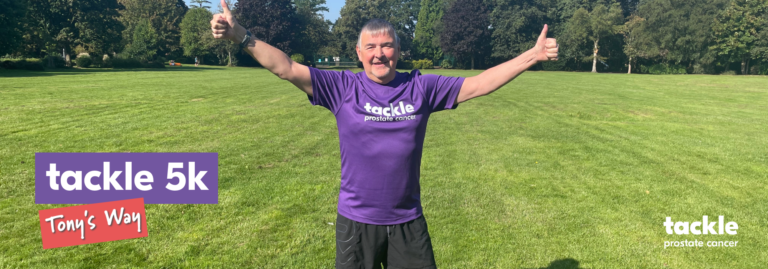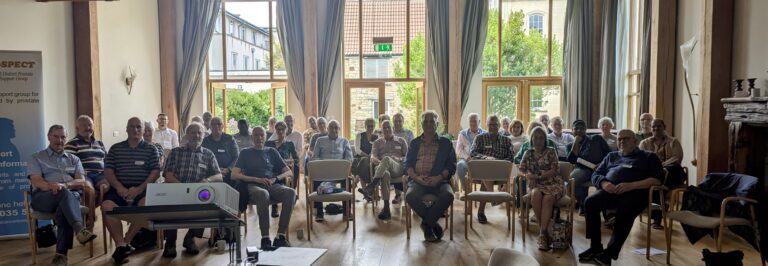Prostate cancer patients ‘abandoned to deal with erection problems alone’ – Prostate Cancer UK warns
Thousands of prostate cancer survivors affected by erectile dysfunction are being abandoned without adequate support, new Freedom of Information (FOI) data obtained by Prostate Cancer UK has revealed.
Today, the UK’s leading men’s health charity has issued a warning that patchy, insufficient care for erection problems is leaving men across the country with unnecessary long term physical and psychological damage, and is calling on the nation to take action by campaigning for better care in their area.
Erectile dysfunction is a common side effect of prostate cancer treatment, affecting 76% of men who have been treated for the disease but it can often be treated if the right care is available.
However, the results of recent FOI requests issued by Prostate Cancer UKreveal a dramatic post code lottery of support with just 13% of local health commissioners across the UK providing the breadth of treatment and services needed to give men living with this challenging condition the best chance of recovery. These findings are reinforced by the results of a survey of over 500 men with erectile dysfunction after prostate cancer treatment, in which as many as 1 in 4 (24%) men claimed no one offered them support or medication to deal with the issue.
John Robertson, Specialist Nurse at Prostate Cancer UK said; “When it comes to treating erectile dysfunction following prostate cancer treatment, early support and treatment is vital.
“As a specialist nurse, I regularly speak to men at rock bottom because they can no longer get or maintain an erection. Not only can it put a complete stop to a man’s sex life, it can have devastating longer term implications including depression and relationship breakdowns. It is therefore incredibly concerning that only a handful of men are getting the support needed to overcome this condition and it’s shocking that in some areas men aren’t getting any support whatsoever.”
It is the responsibility of commissioners (CCGs in England, Health Boards in Scotland and Wales and Health & Social Care Trusts in Northern Ireland) to bring about change at a local level. In a bid to put a stop to the wide disparity in care, Prostate Cancer UK is calling on the public to put urgent pressure on health funders in the worst performing areas to ensure they are held accountable for improving access to treatments and support.
Recent treatment guidance for erectile dysfunction produced by Prostate Cancer UK and Macmillan Cancer Support recommends early intervention and a choice of five treatment and support options in order to give men the best chance of recovery. Treatment and support should include access to a NHS erectile dysfunction clinic, an appropriate choice of medication including daily low dose tadalafil (Cialis®), vacuum pumps, and access to psychosexual clinics and counselling services. Erectile dysfunction clinics are widely regarded as the most essential service, as they provide support across both physical and emotional needs and help men to understand what they should expect at each stage of their recovery. However, the FOI results revealed that only half (51%) of commissioners could confirm that they offer this as an option. Two commissioners admitted that they offer no support whatsoever and almost 1 in 5 (17%) were completely unaware of the arrangements in their area. 17 commissioners failed to provide satisfactory information for all questions raised in the request.
Robertson continued; “This is an issue that has been swept under the carpet for too long and thousands of men have been left to suffer in silence. Erectile dysfunction is a debilitating health condition and it must be taken seriously by the NHS and commissioning groups. Now is the time to take action – everyone can do their bit to make sure men across the country get access to the vital support they need.”
Brian White from Leeds (42) was diagnosed with prostate cancer at the age of 41. He had an operation to remove his prostate in October 2015.
“My partner and I were made fully aware of the possible side effects – incontinence and erectile dysfunction, but at the time I was so focussed on getting rid of the cancer – the longer term implications didn’t really come into question.
“One year down the line and I’m still in remission but I’m living with the harsh side effects of my treatment. Thankfully my incontinence is much better but I’m still struggling with erections. I’m only 42 and my partner is 36. Sex and intimacy is so important to us, as it is to most relationships and adjusting to a different way of life has been incredibly difficult. The spontaneity of our sexual relationship has gone and now every intimate moment has to be planned well in advance.
“Things are certainly improving but the road to recovery is a long one. I want to make everyone aware that support for erectile problems shouldn’t be a ‘nice to have’ – it’s essential. Before any man undergoes treatment for prostate cancer he needs to be safe in knowledge that there is appropriate care on the other side to help him with the aftermath. The fact that some men don’t get access to any support whatsoever is shocking.”
To join the fight and campaign for better care for men in your area, visit: bettercare.prostatecanceruk.org
For further information on erectile dysfunction visit: prostatecanceruk.org/erectiledysfunction or speak to Prostate Cancer UK’s Specialist Nurses on 0800 074 8383.



